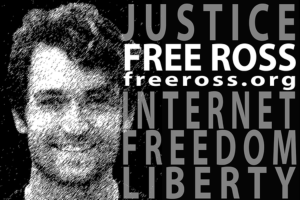 For those of us who have been following the coverage on Ross Ulbricht and the Silk Road case, we’ve heard from news anchors, print journalists, bloggers, and commentators. But yesterday, those of us at the SXSW panel, “The Silk Road Case: Impacting Our Digital Future,” got to hear the story from a new perspective—Lyn Ulbricht, Ross Ulbricht’s mother.
For those of us who have been following the coverage on Ross Ulbricht and the Silk Road case, we’ve heard from news anchors, print journalists, bloggers, and commentators. But yesterday, those of us at the SXSW panel, “The Silk Road Case: Impacting Our Digital Future,” got to hear the story from a new perspective—Lyn Ulbricht, Ross Ulbricht’s mother.
According to Lyn Ulbricht, the deck was stacked against her son before he even walked into the courtroom.
“If you only tell one side of the story,” Lyn Ulbricht said, “you can make anything sound convincing.”
She then went on to describe the events of the trial, detailing how and why she believed her son had been railroaded by the court and not provided the opportunity for a fair trial.
Though the trial appeared to start off on an even plane, Lyn Ulbricht said that after a weekend-long recess, the court returned with a new agenda.
 Lyn Ulbricht said that her son and his defense team were denied the opportunity to call their own witnesses on multiple occasions, denied the opportunity to cross-examine the prosecution’s witnesses more than once, and flat-out denied the right to ask important questions such as whether or not the investigators on the case ever had any other suspects. (Which, apparently, they did.)
Lyn Ulbricht said that her son and his defense team were denied the opportunity to call their own witnesses on multiple occasions, denied the opportunity to cross-examine the prosecution’s witnesses more than once, and flat-out denied the right to ask important questions such as whether or not the investigators on the case ever had any other suspects. (Which, apparently, they did.)
While Lyn Ulbricht’s side of her son’s story is clearly, and understandably, wrought with bias and emotion, it was the premise of the case itself that should be of interest to everyone working in digital. That is, if you create or host a website, app, other other digital platform, should you be held responsible for how other people use it?
If someone makes death threats over Facebook and then carries them out, should Facebook be held responsible? If someone uses UPS to send drug paraphernalia or other contraband, is UPS to blame?
Regardless of your thoughts on Silk Road and the innocence or guilt of Ross Ulbricht, this case sets an alarming precedent for digital. In a field where creation and innovation are paramount, must we now limit ourselves for fear of how other people may use our digital content?
